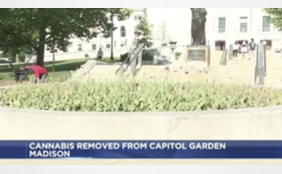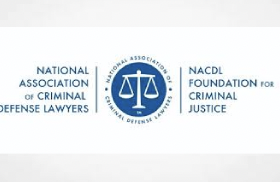Dionne Kellier is Counsel to Hoban Law Group and an Attorney-at-Law licensed to practice in the State of Florida and Washington, D.C. Dionne received her B.A. in Legal Communications from Howard University in Washington, D.C. and her Juris Doctor from Nova Southeastern University in Fort Lauderdale, FL. Most recently, Dionne received her LLM in taxation at Villanova University in Pennsylvania.
Prior to getting involved in Tax Law, Dionne was a litigator for several years, representing Lenders, Banks and Servicers in Foreclosure actions. In 2015, she moved to Colorado and became very interested in the Cannabis Industry, and made it her mission to provide proper planning and advice to those in the Industry, especially regarding Banking and Taxation.
Recently, Dionne moved back to Florida but has maintained her mission of seeking to help those in the Industry plan properly. She is in private practice in Downtown Fort Lauderdale at Dionne M. Kellier, PA and her practice consists of Tax Resolution, Tax Planning and Business Planning.
In Florida, operators of Medical Marijuana Treatment Centers (MMTCs) are required to handle all aspects of the cannabis trade, including growing, processing and dispensing. This means that an operator either needs to have expertise in all of these areas or very quickly go into business with someone who does and create a business structure that would be acceptable to all included parties and the State. This structure is different than in Colorado, for example, which allows separate, legally operated businesses to provide services in which they have the expertise to medical marijuana businesses.
I lived in Colorado for a few years, and had the pleasure of working with a logistics company that legally transported money and products throughout the entire State. This type of setup is beneficial to all parties. Why? Logistics alone is a force to be reckoned with. Setting up routes and ensuring compliance with both the Department of Transportation and state medical or adult-use marijuana laws is difficult. Each day brought its own set of issues, whether a driver was out sick, or a dispensary had an emergency order that needed to be picked up or delivered, it accounted for a huge utilization of resources.
One entity cannot be proficient at everything. It is beneficial to the businesses, and even more so the patients, that MMTCs focus strictly on patient care, rehabilitation and addressing issues treatable with medical marijuana, while other reputable businesses focus on their areas of expertise. Nurseries should be a separate entity that focuses strictly on plant growth, care and maintenance. Logistics should be handled by an entity that understands the implications of ensuring vehicles, protecting loads and providing adequate security for these transactions.
In August, Leon County Circuit Court Judge Charles Dodson ruled that the State law requiring vertical integration was flawed, and he stopped short of issuing a temporary injunction. This matter has not been settled yet but based on the swift actions I have seen with Florida’s Governor Ron DeSantis, I anticipate this issue will be resolved within 2019 and vertical integration will no longer be required in Florida.
Dionne Kellier is Counsel to Hoban Law Group and an Attorney-at-Law licensed to practice in the State of Florida and Washington, D.C. Prior to getting involved in Tax Law, Dionne was a litigator for several years, representing Lenders, Banks, and Servicers in Foreclosure actions. Residing in downtown Fort Lauderdale, Dionne has made it her mission to provide proper planning and advice to those in the cannabis Industry, especially regarding Banking and Taxation. Her practice consists of Tax Resolution, Tax Planning and Business Planning.
This article has been prepared for informational and general guidance purposes only; it does not constitute legal or professional advice. You should not act upon the information contained herein without obtaining specific professional advice. No representation or warranty (express or implied) is made to the accuracy or completeness of the information contained in this publication. Hoban Law Group, its members, employees, and agents accept no liability, and disclaim all responsibility, for the consequences of you or anyone else acting, or refraining to act, in reliance on the information contained in this publication or for any decision based thereupon.


















